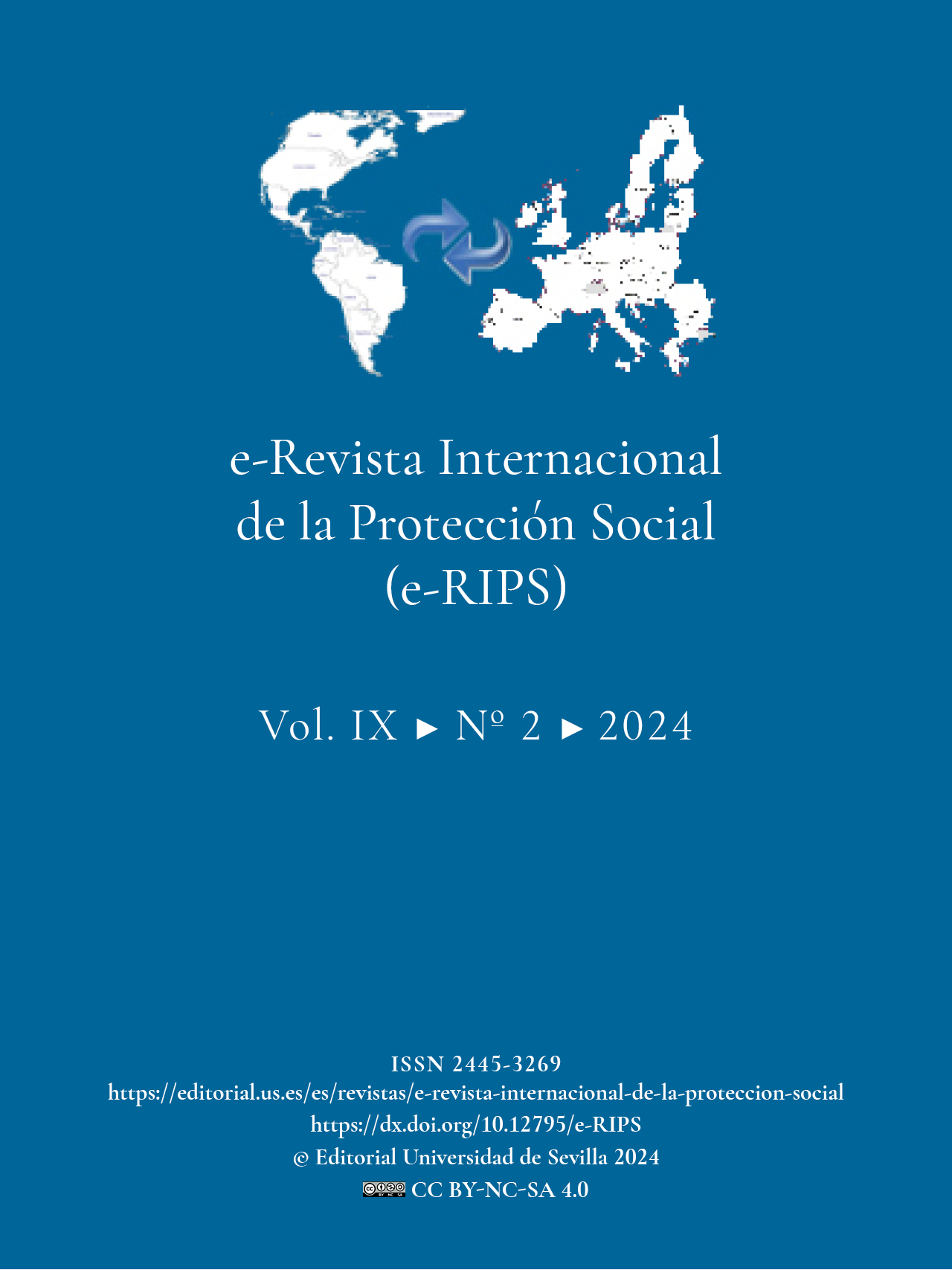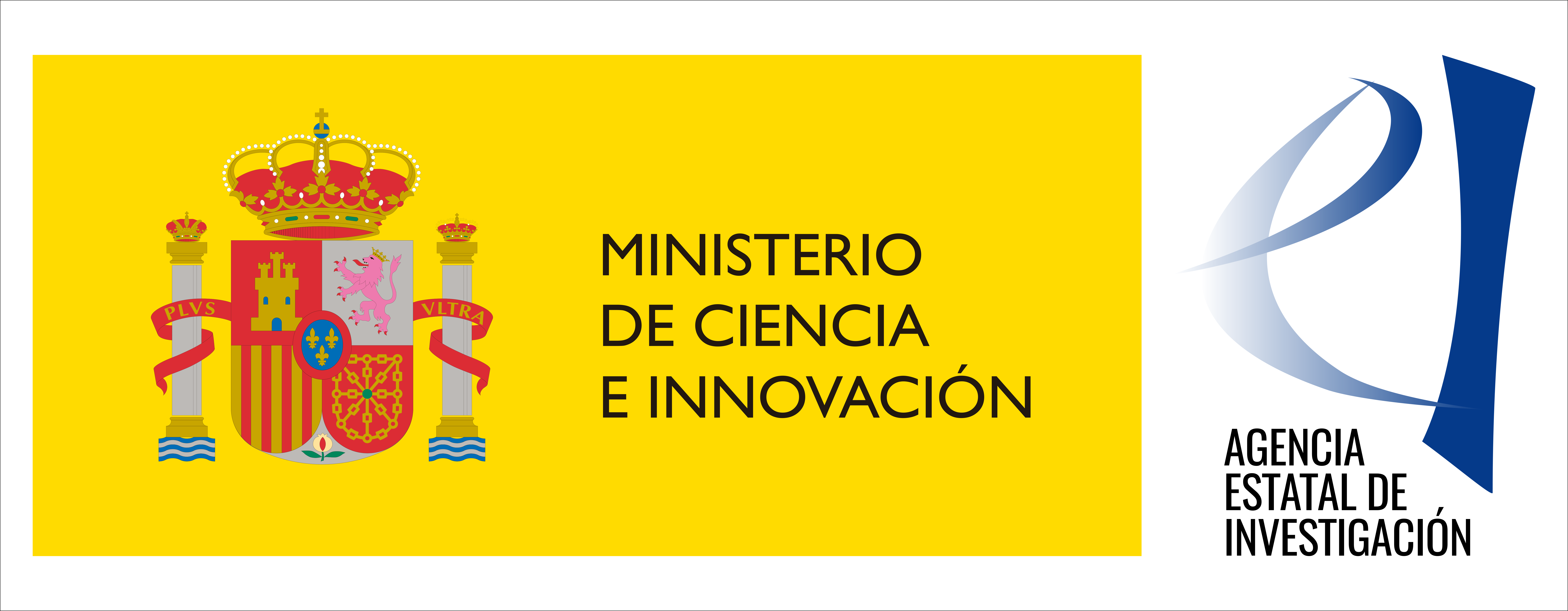Towards a just and sustainable transition to digitised employment. Some reflections on vocational education and training and the European Digital Education Action Plan (2021-2027)
DOI:
https://doi.org/10.12795/e-RIPS.2024.i02.07Keywords:
Training, Employment, Sustainable, Digitalisation, GapAbstract
Education is a human right; therefore, in line with the European Pillar of Social Rights, Member States and companies should adopt measures aimed at lifelong learning that provide society with opportunities for access to employment, personal and professional development, and make it one of the essential guiding principles of education and training policies.
This paper will reflect on the importance of a complete qualification in the face of the challenges of the double digital and ecological transition of employment, based on a validated and certified training in digital, ecological and sustainable skills. Among these, it will reflect on the importance of linking skills-based learning with paid educational leave, where basic levels of training are promoted with a special focus on bridging the gender and generational gap in society.
In this way, some internal measures and policies will be proposed that are considered necessary for companies, bearing in mind the European Action Plan for Digital Education (2021-2027), to be especially aware of the existing inequalities and the challenges at the labour level that certain groups –considered more vulnerable– suffer from an increasingly digitalised work model that is hardly oriented towards fairness.
Downloads
References
Alegre Canosa, M. A.: “Los factores del abandono educativo temprano. España en el caro europeo”, Revista de Educación, núm. extraordinario, 2009.
Álvarez Cuesta, H.: “Transición energética y políticas de empleo verde: el caso de la minería del carbón en el noroeste de España”, Labos: Revista de Derecho del Trabajo y Protección Social, vol. 3, núm. 3, 2022.
Bautista-Cerro Ruiz, M. J.; Díaz González M. J.: “La sostenibilidad en los grados universitarios: presencia y coherencia”, Teor. Edu., núm. 29, 2017.
Bayón-Calvo, S.: “Una radiografía del abandono escolar temprano en España: Algunas claves para la política educativa en los inicios del siglo XXI”, Revista Complutense de Educación, núm. 30(1), 2019.
Beltrán Lara, M. L.: “Educación en Derechos Humanos”, Biblioteca jurídica virtual del Instituto de Investigaciones Jurídicas de la UNAM, 2006.
Casanova, F.: Formación profesional y relaciones laborales, Oficina Internacional del Trabajo, 2003.
Díaz Rodríguez, J. M.: “El empleo verde en un mundo económico insostenible”, Revista de Trabajo y Seguridad Social CEF, 2022.
Fernández-Mellizo, M.: “Análisis del abandono de los estudiantes de grado en las universidades presenciales en España”, Programa Editorial del Ministerio de Universidades, 2022.
Hernández Armenteros, J. H.; Pérez García, J. A.: “Abandono de los estudios universitarios en España”, CRUE, núm. 04
Jiménez Herrero, L. M.: “La sostenibilidad como oportunidad ante la crisis: economía verde y empleo”, Ambienta: Crisis y medio ambiente: ¿Oportunidad o retroceso?, núm. 101, 2012.
Kahale Carrillo, D.: “Las medidas para implementar los empleos verdes en España”, Revista Internacional y Comparada de Relaciones Laborales y Derecho del Empleo, vol. 5, núm. 1, 2017.
Papi Musatadi, A.: “Transición digital y ecológica, nuevos nichos de empleo y nuevas habilidades requeridas”, Revista Internacional y Comparada de Relaciones Laborales y Derecho del Empleo, vol. 11, núm. 4, 2023
Pérez Hernández, A. F.; Méndez Sánchez, C. J.; Pérez Arellano, P.; Yris Whizar, H. M.: “Los criterios de evaluación del aprendizaje en la educación superior”, Perspectivas Docentes, núm. 63.
Rodríguez Escanciano, S.: “Economía social, eco-empleos y cuidados de larga duración: claves para una transición justa”, CIRIEC-España, Revista Jurídica de Economía Social y Cooperativa, núm. 42, 2023.
Scioscioli, S.: “El derecho a la educación como derecho fundamental y sus alcances en el derecho internacional de los derechos humanos”, Journal of Supranational Policies of Education, núm. 2, 2014.
Sierra Hernaiz, E.: “El proceso de transición justa: los empleos verdes como instrumentos para su implementación”, Foro: Revista de Derecho, núm. 40, 2023.
Souto Suárez, R.; Jiménez Jiménez, F.; Navarro Adelantado, V.: “La percepción de los estudiantes sobre los sistemas de evaluación formativa aplicados en la educación superior”, Revista Iberoamericana de Evaluación Educativa, núm. 13(1), 2020.
Published
How to Cite
Issue
Section
License
Copyright (c) 2024 Lucía Dolores Aragüez Valenzuela

This work is licensed under a Creative Commons Attribution-NonCommercial-ShareAlike 4.0 International License.
Authors being published in this journal agree to the following terms:
- Authors retain their copyright and they will guarantee to the journal the right of first publication of their work, which will be simultaneously subject to license recognition by Attribution-NonCommercial-ShareAlike (CC BY-NC-SA 4.0 DEED)
that allows others to share such work provided that the author’s name and his first publication in the e-International Review on Social Protection is stated. - Authors may take other non-exclusive distribution license agreements version of the published work (e.g. deposit in an institutional digital file or publication in a monographic volume) provided that the initial publication in this journal is stated.
- Authors are allowed and encouraged to disseminate their work via the Internet (e.g. in institutional digital files or on their website) prior to and during the submission process, which can lead to interesting exchanges and to increase citation of the published work.
Accepted 2024-12-02
Published 2024-12-27
- Abstract 77
- PDF (Español (España)) 63
- HTML (Español (España)) 14










